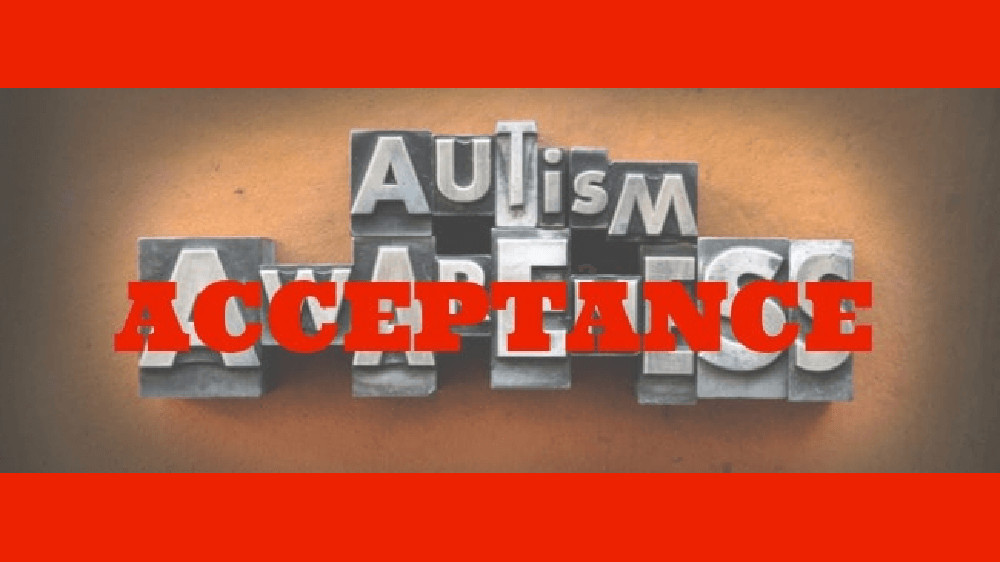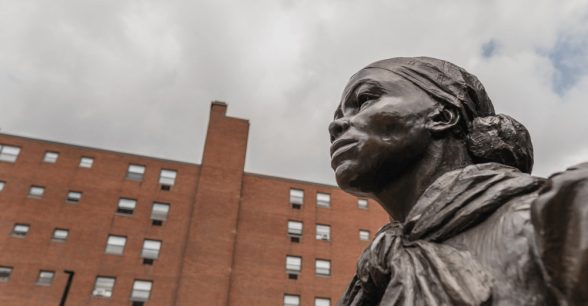Autistic People are Taking Back Autism “Awareness.” It’s About Acceptance.
As a joke a few years ago, I posted on April 2 (widely celebrated as World Autism Awareness Day), “I think you’re all aware, but I’m autistic.” I was sick of seeing photos of non-autistic people on fundraising walks for autism awareness and explaining why many autistic people wouldn’t want a cure even if one were available. I was exhausted because although from the outside it sounds like Autism Awareness Month should be all about autistic people, it’s actually not—and I’m always invisible in conversations about my own disability.
Every April, people pull out their blue clothing and puzzle piece memorabilia to honor Autism Awareness Month, which was started by the Autism Society in 1970 to educate communities and spread public awareness about autism. Since then, the autistic community has spoken up about some of the problems with how this month is celebrated—including its ties to the organization Autism Speaks (that were basically created by Autism Speaks with campaigns like “Light It Up Blue”) and their history of disrespecting autistic people, and its focus on awareness instead of any actionable shift in how autistic people are treated.
In 2011, autistic people decided to take back Autism Awareness Month, and Paula Durbin Westby organized the first Autism Acceptance Month in response. Westby chose the word “acceptance,” which conveys a shift in thinking or in action, and goes beyond just being aware that autistic people exist. It’s about equal rights and justice for the autistic community, treating autistic people with autonomy and respect, and adopting a “nothing about us without us” mindset that autistic people should be at the center of conversations about autism.
“The word ‘acceptance’ is much stronger than ‘tolerance,’ especially the begrudging sort of tolerance I saw so often,” Westby said in an interview on AssistiveWare. “I stated in my original writings about Autism Acceptance Day that acceptance does not mean ‘I accept you, but not your autism.’ Acceptance is: pro-neurodiversity, a focus on supports and services tailored to the needs of the Autistic individual, rejection of cure-oriented projects.”
Autism awareness rarely goes beyond just basic education, and is often steeped in stereotypes and misinformation about autistic people. The fact is that if you’ve met one autistic person, you’ve met one autistic person: We are all individuals and autistic acceptance and inclusion needs to be treated like a complex, multifaceted solution.
We need autism acceptance because autistic people are at a higher risk of homelessness, substance abuse, unemployment and underemployment, incarceration, domestic violence, and other systemic issues that exist because we live in a society that doesn’t accept autistic people. We need autism acceptance because Applied Behavioral Analysis is still a leading therapy for autistic children, despite how many autistic activists have talked about how cruel the practice can be. We need autism acceptance because autistic kids and adults are punished by the education system just for being ourselves—like when my elementary school teachers forced me into time outs because I wasn’t capable of doing my work without stimming, a repetitive movement common in the autistic community that allows me to focus my creative energy and mitigate any sensory overload.
If you want to support the autistic community in creating autism acceptance, you can start by listening to us. Ask us what we need as individuals, and create space for radical access in your social spaces, workplaces, schools, organized events, and more. Are there ways that your spaces could be more accessible to the autistic people in your life and community? Access isn’t a one-size-fits-all situation, so it’s also important to make it clear that the burden isn’t on autistic people to ask for what we need, but that there’s an open line of communication between all parties. When I’m planning an event for friends, for example, I’ll give everyone several varied options or I’ll ask an open-ended question like, “I was thinking of getting Italian food together in the afternoon. Does that work for everyone?” or “Is there a movie that’s out that anyone wants to see?”
Prioritize and center autistic voices—not just during April, but any time there’s a conversation about autism or that impacts autistic people. Don’t talk over us or make assumptions. If an autistic person tells you that they need something or they aren’t able to do something, believe them and offer any support that you can.
Autism Acceptance Month exists because of autistic activists, and it’s time for the non-autistic community to take actionable steps toward a more accessible and inclusive society. The future of autism acceptance is a world where allies are willing to challenge their own internalized ableism and assumptions about what it means to be autistic. It’s a world where autistic people are radically included in spaces that are meaningfully accessible to us, and we don’t have to fight to have our needs respected or supported. It’s a future that I’m excited for, and the first step is actively supporting the autistic community during Autism Acceptance Month and beyond.
About Rooted In Rights
Rooted in Rights exists to amplify the perspectives of the disability community. Blog posts and storyteller videos that we publish and content we re-share on social media do not necessarily reflect the opinions or values of Rooted in Rights nor indicate an endorsement of a program or service by Rooted in Rights. We respect and aim to reflect the diversity of opinions and experiences of the disability community. Rooted in Rights seeks to highlight discussions, not direct them. Learn more about Rooted In Rights




Well said my 20 year old stood up in front of over 100 people to tell them how he was bullied at school and why other ( so called normal kids would not play with him) because he had Autism. He is a ambassador for Action for Children in UK which gives them respite. I agree let them talk for their selves. You might not like what they say as it will be the truth .But they can talk and tell you what they want if people will listen.